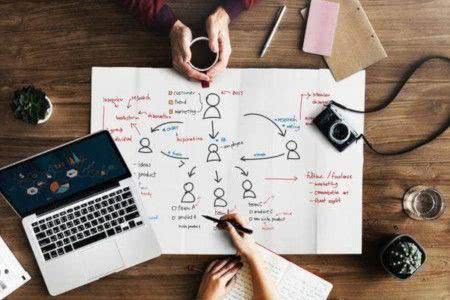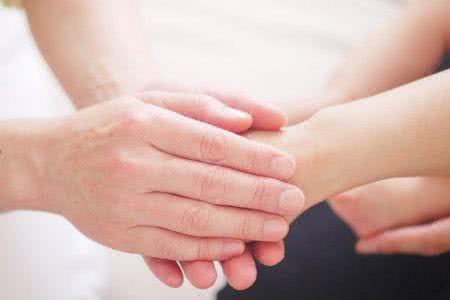Are you or a loved one struggling with MDMA abuse?Specialist addiction counsellor supported treatment for Ecstasy and related drug addictions. Secure, discreet, residential and bespoke outpatient programmes.
Ecstasy Addiction Online Counselling in Johannesburg
Ecstasy/MDMA Addiction Recovery
Ecstasy is a unique drug in that it is both a stimulant and a hallucinogen, thus increases energy and has a wide range of emotional changes in patients. MDMA, like most other stimulants, can cause significant addiction problems and while mostly taken as a recreational “club drug” there are many serious associated risks.
Repeated use of MDMA can lead to changes in brain chemistry, which can result in physical and psychological dependence on the drug. Individuals who abuse MDMA may experience withdrawal symptoms when they try to stop using the drug, such as anxiety, depression, insomnia, and cravings for the drug. Long-term use of MDMA can also cause other health problems, such as memory loss, cognitive impairments, and mood disorders. In severe cases, MDMA abuse can lead to seizures, heart failure, and even death.
Treatment for MDMA addiction typically involves a combination of detoxification, behavioral therapy, and support groups. It’s important for individuals struggling with MDMA addiction to seek professional help as soon as possible to increase their chances of successful recovery.
Help is Available, Treatment Works, Recovery is Possible.
With the right treatment and commitment to support meetings or therapy, anyone can get on and stay on the road to recovery.
The complete chemical name for ecstasy is 3,4-methylenedioxymethamphetamine or MDMA. This is a synthetic drug which has a number of psychoactive effects including energy, euphoria, emotional warmth, and time distortions, perception, and tactile experiences. Ecstasy is chemically similar to hallucinogenic mescaline and meth amphetamine type classes of stimulants. This is a popular yet illegal “club drug”, most often consumed in pill, tablet, or capsule and in some cases powder format.
This drug is frequently mixed or “cut” with other bulking agents, dextromethorphan and caffeine is relatively common however in some cases ecstasy is mixed with more addictive drugs like ketamine, cocaine, amphetamines or methamphetamines. In the case of poly addictions, users electively mix ecstasy with other substances to achieve a different “high” effects. Ecstasy use in combination with other drugs can be very dangerous.
Ecstasy interrupts many of the brains chemical functions. Users body temperature’s signals to the brain are affected, that can lead to hypothermia, dehydration, or heat stroke. In extreme cases users can die from seizures, strokes, heart attacks and kidney failure. Conclusive evidence demonstrates that ecstasy causes damage to nerve cells which naturally produce serotonin in the brain, consequentially moods, emotions, sleep, memory, and cognitive skills are negatively impacted.
When is Ecstasy Addiction a Problem that Requires Treatment?
Ecstasy addiction treatment is required when the user is unable to control using the drug in spite of physically or emotionally detrimental consequences. The negative side effects of ecstasy abuse include depression, confusion, panic, anxiety, and a number of sleep disorders. Effective treatment for ecstasy addiction includes cognitive behavioural modifications and therapy designed to rectify thought patterns and behaviours that will enable long term coping skills in the face of relapse risk.
Factors of ecstasy addiction in many cases can also be treated with post traumatic stress therapy. With highly-trained addiction treatment counsellors and trauma therapists, patients can overcome the addiction.
Frequently Asked Questions About Ecstacy
Handling Ecstasy Overdoses in Clubs
If you suspect that a persons life is at risk of an overdose call an ambulance immediately. Police and paramedics first duty is to preserve life irrespective of the circumstance. Provided you are not in possession of drugs the limitation of your legal standing with the law is “public intoxication” which rarely attracts convictions. Helping a person that is suspected of overdosing on ecstasy is an immediate priority. Call the club security and help move the person to a safe location for paramedics to get to them quickly on arrival. Try keep their body temperature stabilised and drinking lucozade or energy drinks that do not contain caffeine.
How to Get Rid of Ecstacy High
Looking at the traffic to this page it seems like a lot of users want to know the answer to how to slow down or stop “rolling” on Ecstacy. Having been in the “rave scene” the logical conclusion is that people looking at this page have taken Ecstacy and now need to “comedown” in order to drive back from some party or meet parents.
Do NOT drive on Ecstacy, the effects of this drug on motor coordination skills and lack of appropriate judgement is well documented in the national road death toll in South Africa if in any doubt call an Uber or taxi to take you home. Never get into any car with anyone driving on ecstacy.
Ecstasy users are advised to drink orange juice both before & after taking a pill. This reduces a number of risk factors on in the brains free radicals, Vitamin C seems to help with dulling the effect of ecstasy.
Horlicks and malt type drinks contain tryptophan which will help restore some serotonin receptors in the brain.
Melatonin will help individuals to get to sleep, one should avoid “downers or prescription depression or anti anxiety medications” however they are sometimes used to calm distressed individuals.
Common Names for Ecstacy
Street Names and Slang Terms
X, E, or XTC, Extacy, Adam, Beans, Cadillac, California Sunrise, California Sunshine, Candy, Dancing Shoes, Pills, Ees, Disco Biscuits, Doves, Elephants, Eve or Eve’s, E-bomb, Egg Rolls, Happy Pill, Hug Drug, Love Drug, Dolly, MDMA, Malcolm (or Malcolm X), Molly, Roll or Rolls, Scooby Snacks, Stacy, Smart-ees, Sweets, Skittles, Thizz, Vitamin E or Vitamin X
Slang Terms
Drop, Double Drop, Double Dropping, Flip or Flipping, Roll, Rolling, Cuddle Puddle, E-Puddle, E-tard, Raver and Raving.
FAQ Continued:
What is Liquid Ecstasy?
Liquid Ecstasy is a separate drug called GHB (the date rape drug), GHB is a nervous system depressant that used to be found in some brands of drain cleaners, floor strippers and degreasing solvents.
Is Ecstasy Even Addictive?
Ecstasy is addictive in that it triggers the exact same neurotransmitters (serotonin, dopamine, & norepinephrine) as found with highly addictive drugs. Regular ecstasy use causes a number psychological addiction issues.
Tolerance to MDMA builds very quickly and users need to take more to achieve the same highs. Ecstasy depression is a well documented after effect of the drug. 90% of users take other more harmful and addictive drugs to try counteract the comedown depressions caused by Ecstasy.
Common Indicators of Ecstasy Addiction
- Most addiction is defined by the continued use of the drug despite negative consequences.
- Craving
- Loss of control of frequency or amount of use
- Needing more and more ecstasy to feel the same effects
- Obsessive thoughts of ecstasy
Less than 10% of Ecstasy pills on the market are pure MDMA thus the risks of overdosing, poisoning or getting addicted to other substances mixed with MDMA are high. Remembering that Ecstasy is an illegal substance there are no standards in the manufacturing process of the drug, so users have literally no idea as to what they are taking.
Seek professional help if you feel that you could be addicted to ecstasy. This is not a harmless drug.
What Does Ecstasy Look Like?
Most ecstasy sold in clubs are in a tablet or pill with imprinted pictures are of cartoon characters, common brand logos, hearts, stars, butterflies, clover leaves are relatively common symbols of the pressed MDMA tablet. The pills come in different shapes (round with flat sides, hexagonal, and diamond shape, sometime capsules in the case of MDMA powder) but most often the ecstasy pills are round.





